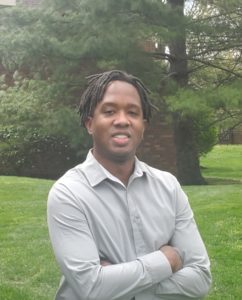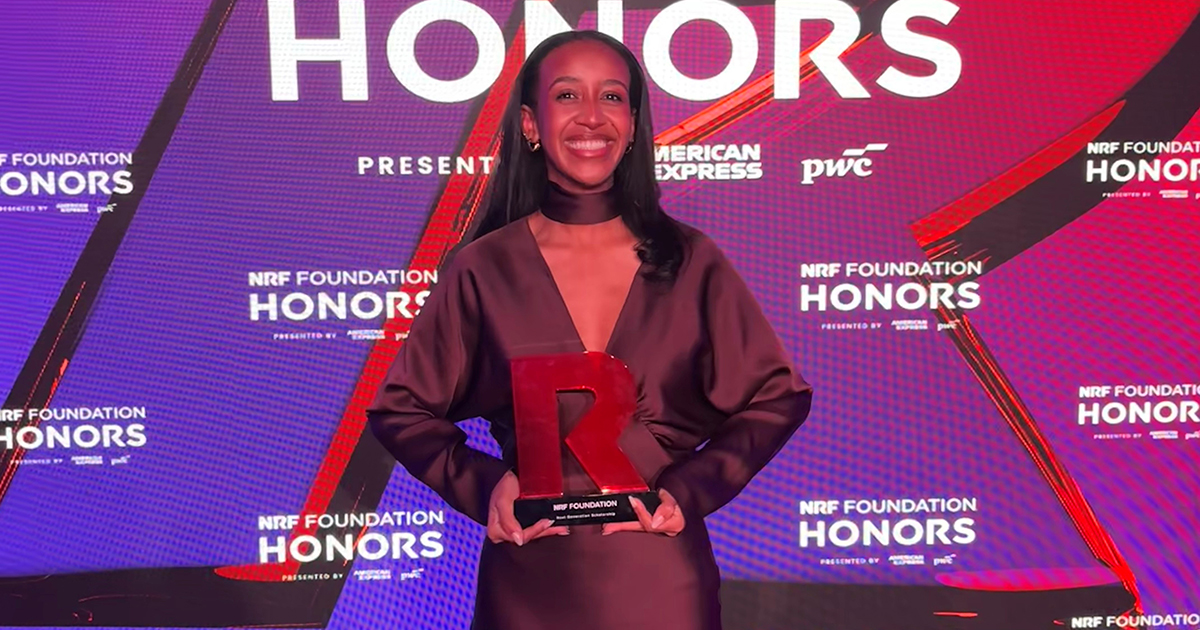Building a More Diverse Pipeline, from the MBA to the Boardroom and Beyond

Cliff Worley MBA’12 wanted to go to business school but was faced with a series of obstacles that seemed insurmountable. The first and scariest of them all? The GMAT.
“My high school didn’t prepare me for standardized testing,” says Worley, who grew up in Oakland, California. Without coaching and proper preparation, he says, “I would have taken the GMAT once, gotten a low score on it and said, ‘Forget it.’ He says his classmates—mostly Black, like him—“all did bad on testing.”
The numbers are discouraging. Minorities make up more than a third of the American population, according to the most recent Census figures, and yet there are only four Black CEOs at Fortune 500 companies, a May 2021 NPR story reports. And, Black students represent less than 10% of the students in business school, according to a 2020 story in The Wall Street Journal.
Management Leadership for Tomorrow (MLT), a national nonprofit, is addressing that imbalance. With a 90% acceptance rate of its fellows into MBA programs, including at Babson College, MLT pretty much “guarantees you’ll get into a program, but they still make you be honest with yourself,” Worley says. “They tell you, ‘If you want to get into Stanford, you’ll need to have these things.’ That’s the hard and sobering part.”
Building a Pipeline
It is sobering, because that’s when deficits emerge, deficits rooted in a system that many education experts and racial justice advocates argue is rigged against minorities from the start. For example, Black third-graders are half as likely as white third-graders to be included in programs for the gifted, and the deficit is nearly as large for Hispanic students, according to work by Vanderbilt researchers. And, it has long been recognized that performance on standardized tests correlates to household income and the education level of parents, among other factors that often put minority students at a disadvantage.
MLT combats those deficits by “removing the mystery” behind the business school application process, Worley says, and—once a person has been accepted into an MBA program—by training them in the skills required for success. That includes everything from coaching them through “mock job interviews to doing their LinkedIn to coming up with elevator pitches,” says Terrance Gresham, associate director of diversity and inclusion at Babson’s F.W. Olin Graduate School of Business.
MLT typically has 250-300 fellows in its MBA prep program. When Gresham started in his role two years ago, Babson had two Black students in the full-time MBA program: one American and one student from Kenya. Boosting those numbers has involved “a lot of work, a lot of heavy lifting and relationship building.” This year, Babson has 10 American Black fellows enrolled in the full-time MBA program.
MLT builds a support system—a “pipeline,” as Worley calls it—that starts with entry into a business school but goes well beyond. Earning an MBA often serves as the springboard to high-paying jobs and promotions.
Learning to Be Scrappy

Sydney Swain MBA’20
Sydney Swain MBA’20 already was a student in Babson’s graduate school when he was recruited into MLT for its professional development program. The most valuable lesson for him was “learning how to present yourself, learning how to tell your story” to a potential employer, he says.
Swain’s parents are both happy in their jobs—his mother as a teacher and administrator in the Chicago Public School system and his father as a Ford factory worker—but he didn’t know too many people who could tell him about the corporate world. MLT taught him about “roles and organizations I didn’t know existed,” he says, including the one he’s in now: process improvement. At Humana, he analyzes data, performs audits, and helps ensure proper governance.
After his MBA, Worley turned down a job paying $120,000 for a marketing role at “Shark Tank” that paid only $30,000. It was a risk, but he says MLT had given him a valuable piece of life advice: If the worst-case scenario is tolerable, then you should take it.
If the job didn’t work out, he might be broke for a period of time. “Did I want to move back to California to live with my mother?” he says with a laugh. “No. Was it tolerable? Yes.” Playing out the scenario, he took the risk and turned that $30,000 job into a $250,000 one within two years. “That’s what MLT teaches you,” he says. “It teaches you to be scrappy.”
Worley is now the senior director of portfolio growth marketing at Kapor Capital, a venture capital firm that invests in tech startups committed to closing gaps of access, opportunity, or outcome for people of color. He loves his job, but he says, “If I ever wanted to move into a different career, I’d call MLT.”
Posted in Community



